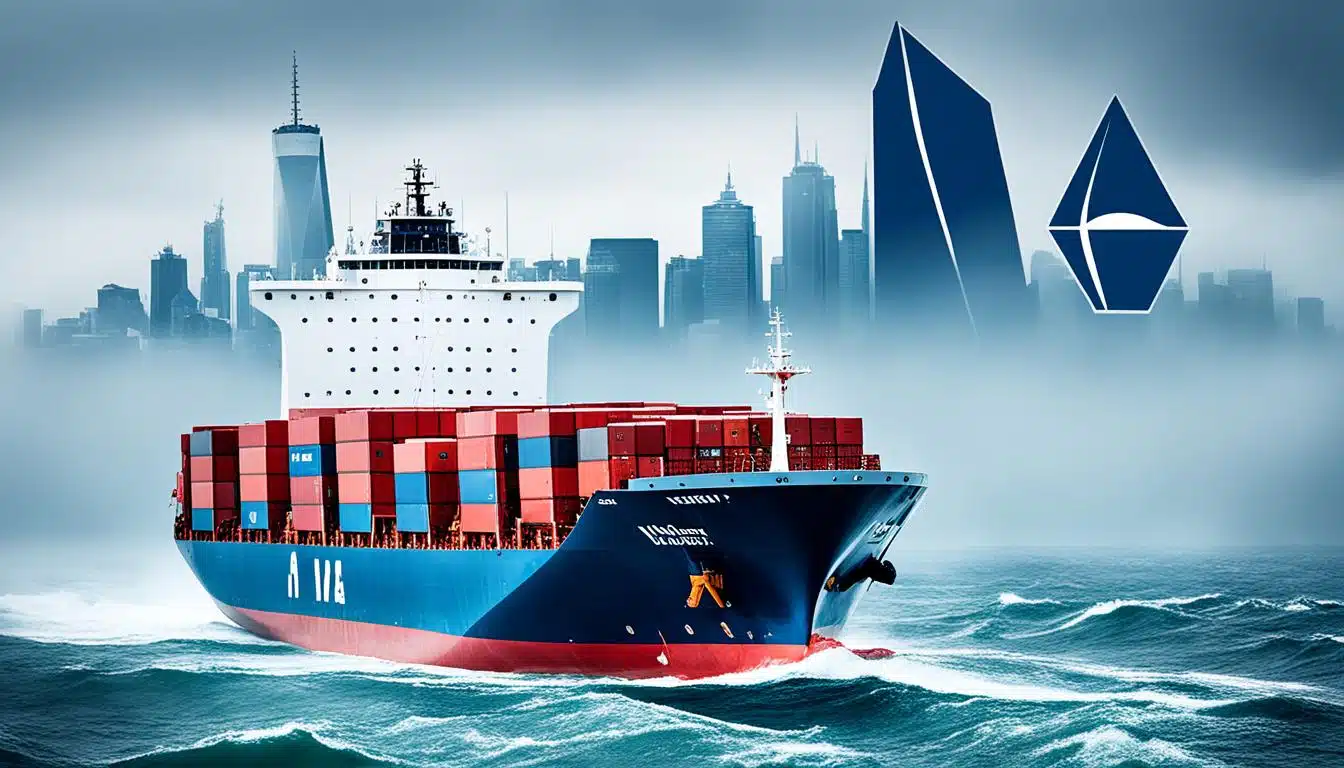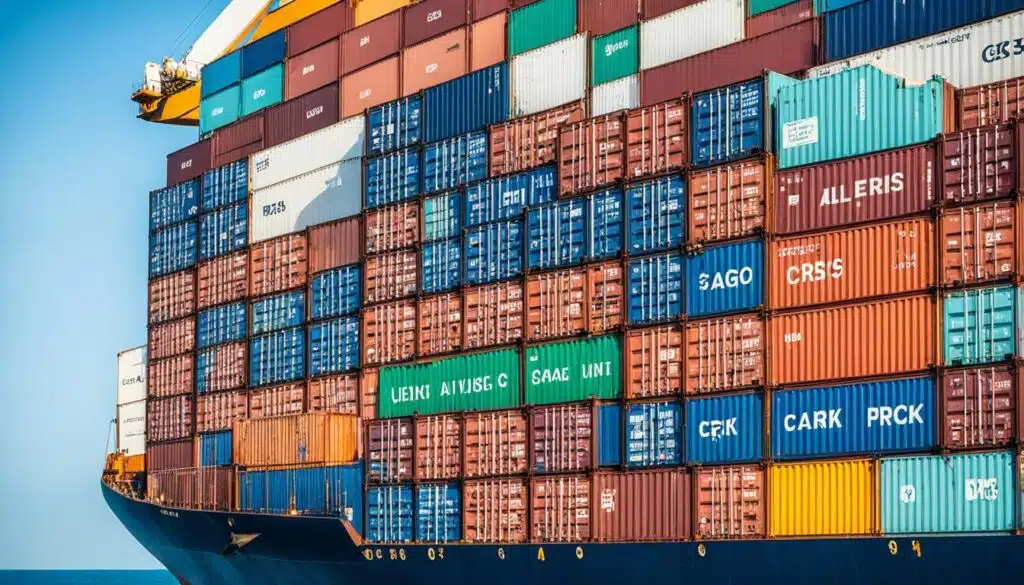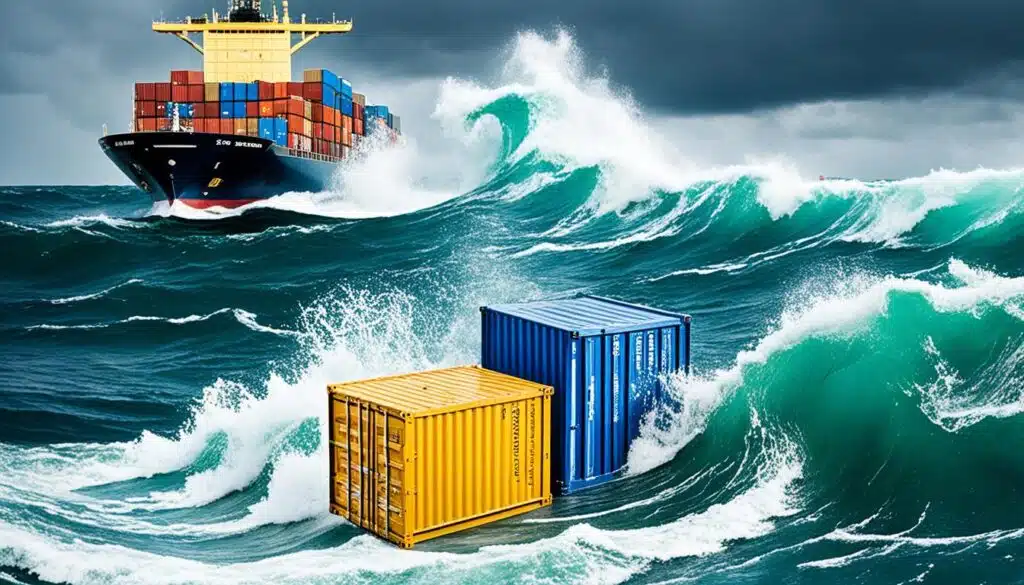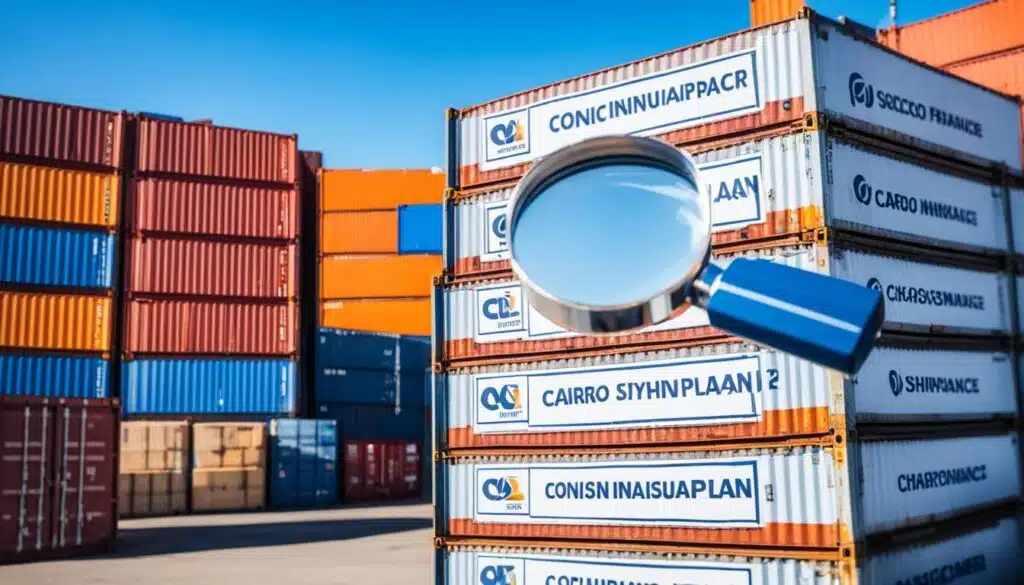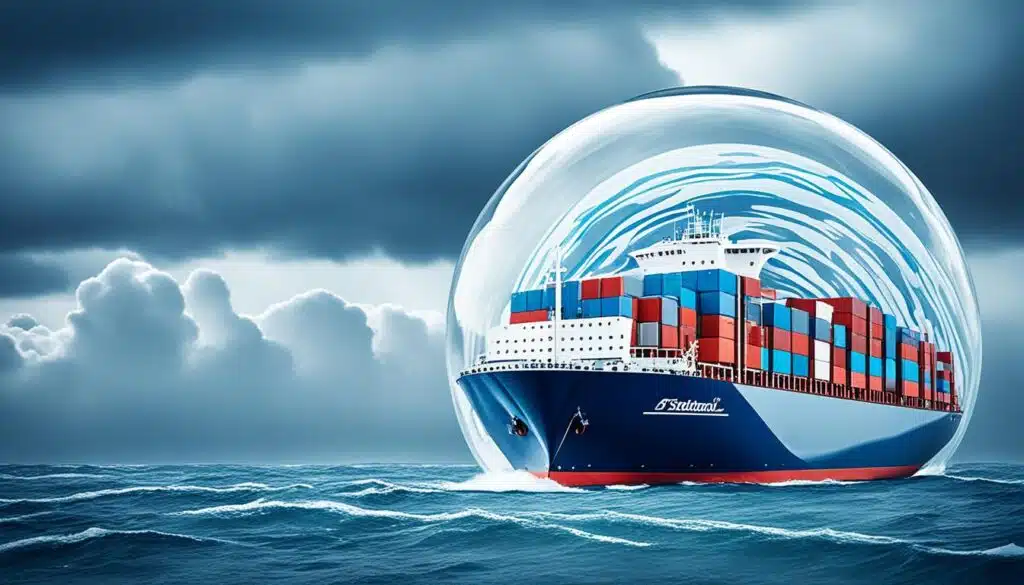When it comes to shipping your valuable cargo, ensuring its safety during transit is of utmost importance. That’s where cargo insurance comes into play. However, not all insurance plans are created equal, and choosing the right one requires understanding the variations in coverage options and providers. In this article, we will explore the key factors to consider when selecting the right cargo insurance plan for your business needs.
Before delving into the intricacies of cargo insurance, it’s essential to understand its significance. Cargo insurance provides financial protection against unforeseen events that can result in loss or damage to your freight. While preventive measures can help minimize risks, there are factors beyond your control that can still lead to unfortunate outcomes. With the right insurance coverage, you can have peace of mind knowing that your cargo is adequately protected.
Now, let’s dive deeper into the different types of cargo insurance policies and their coverage options. This knowledge will equip you with the necessary insights to make an informed decision and safeguard your goods effectively.
Key Takeaways: Right Cargo Insurance Plan
- Understanding the variations in cargo insurance options is crucial for choosing the right coverage plan.
- Cargo insurance provides financial protection against unforeseen events that can result in loss or damage to your freight.
- Different types of cargo insurance include land cargo insurance and marine cargo insurance.
- Consider the coverage options, limitations, and the differences between carrier liability and full value protection when selecting a cargo insurance plan.
- Partnering with a reputable freight forwarder can simplify the insurance process and provide efficient claim management.
The Importance of Cargo Insurance
When it comes to transporting your valuable freight, ensuring its safety and protection is vital. While taking preventive measures can minimize risks, there are unpredictable factors that can lead to unexpected damage or loss during transit. This is where cargo insurance plays a crucial role.
Whether you are shipping by land, sea, or air, cargo insurance provides coverage for a wide range of unforeseen events that can impact your shipment. From bad weather conditions to accidents, theft, or mishandling, cargo insurance offers financial protection against various risks. By insuring your cargo, you can safeguard its monetary value and mitigate the potential losses caused by damage or theft.
Cargo insurance gives you the peace of mind knowing that in the unfortunate event of loss or damage, you are financially protected. It is essential to select a reputable insurance company that provides comprehensive coverage tailored to your specific needs. This way, you can rest assured that the value of your cargo is insured, allowing you to focus on running your business without the worry of financial setbacks caused by transit incidents.
“Cargo insurance provides coverage for unforeseen events such as bad weather, accidents, theft, and more. It safeguards the value of your cargo and provides financial protection in case of any loss or damage during transit.”
By insuring your freight, you are not only protecting your own business’s interests but also meeting the requirements of other stakeholders involved in the logistics process. Many parties, such as carriers, suppliers, and customers, often require proof of cargo insurance to ensure that their own liabilities are covered in case of any unfortunate incidents during transit.
To highlight the significance of cargo insurance, let’s consider an example:
In the image above, you can visualize the diverse nature of the risks involved in shipping cargo. From theft to loss, accidents to damage, these events can occur unexpectedly, regardless of the shipping mode or industry. Cargo insurance ensures that you are adequately protected, offering financial security and minimizing the impact on your business in the face of adversity.
Protect Your Cargo and Mitigate Financial Risks
Insuring your cargo provides you with the opportunity to proactively manage risks associated with the transportation of goods. By securing comprehensive coverage, you can protect your freight’s value and avoid potential financial burdens resulting from unforeseen incidents. Whether you are shipping perishable goods, high-value products, or sensitive materials, cargo insurance is a critical component of your logistics strategy that allows you to operate confidently in an unpredictable business environment.
Stay one step ahead by understanding the importance of cargo insurance and partnering with a reputable insurance provider to ensure that your freight is safeguarded throughout its journey.
Types of Cargo Insurance
When it comes to cargo insurance, there are various types of coverage available to protect your shipments. Understanding the different options and policies can help you make informed decisions to ensure your cargo is adequately protected throughout its journey.
Land Cargo Insurance
Land cargo insurance provides coverage for shipments transported on land, typically by trucks or other utility vehicles. Whether your goods are being transported domestically or across borders, land cargo insurance offers protection against risks such as accidents, theft, and damage during land transportation. This type of insurance is crucial for safeguarding your cargo while it is in transit on roads and highways.
Marine Cargo Insurance
For shipments that involve international transportation by sea or air, marine cargo insurance is essential. This type of insurance provides coverage for the sea or air leg of your shipment’s journey. It protects your goods from perils such as rough weather conditions, vessel sinking or capsizing, piracy, and other risks associated with maritime or air transport. Marine cargo insurance offers comprehensive coverage, ensuring that your valuable cargo is protected during long-distance voyages.
Incorporating both land cargo insurance and marine cargo insurance into your coverage can provide a well-rounded protection plan that covers your shipments from the start to the end of their journey, regardless of the mode of transportation involved.
Insurance Policies and Coverage Options
When it comes to cargo insurance, there are different policies and coverage options available to meet your specific needs. These options may include:
- All-risk coverage: Comprehensive protection that covers a wide range of perils and risks, except for specific exclusions specified in the policy.
- Named perils policy: Insurance coverage that only protects against specified perils listed in the policy. This type of policy provides coverage for specifically named risks, offering a more targeted approach.
- General average coverage: Protection against losses that occur during maritime emergencies, where the costs of damages or jettisoned cargo are proportionately shared among all parties with a financial interest in the voyage. General average coverage is crucial for protecting your cargo in situations where sacrifices or expenses are necessary to save a vessel or its cargo.
Choosing the right insurance policy and coverage option depends on various factors, including the nature of your cargo, the value of the goods, the mode of transportation, and the potential risks involved. It’s important to assess your specific needs and consult with insurance providers to determine the most suitable coverage options for your business.
Coverage Options and Limitations
When it comes to cargo insurance, understanding the coverage options and limitations is crucial for selecting the right plan. Let’s explore the various types of coverage available to protect your valuable shipments.
All risk coverage offers broad protection against external factors that could lead to loss or damage to your cargo during transit. However, it’s important to note that this coverage may exclude situations involving negligence or inherent vice.
Named perils policy is another option that covers losses caused specifically by the perils listed in the policy. These perils are typically specified and defined by the insurance provider, ensuring clarity and transparency in terms of coverage.
General average coverage is particularly important when it comes to maritime emergencies. In such situations, the costs of damages or jettisoned cargo are proportionately shared among all parties with a financial interest in the voyage. Having general average coverage protects you from unforeseen costs that may arise during these emergencies.
To illustrate the differences between these coverage options, refer to the table below:
| Coverage Option | Protection | Limitations |
|---|---|---|
| All Risk Coverage | Offers broad protection against external factors | Excludes negligence and inherent vice |
| Named Perils Policy | Covers losses caused by specified perils | Only includes perils listed in the policy |
| General Average Coverage | Protects against costs during maritime emergencies | Specific to maritime emergencies |
Understanding the coverage options and their limitations will enable you to make an informed decision when selecting a cargo insurance plan. Remember, each business’s needs may vary, so it’s essential to assess the nature of your cargo and choose the coverage that best aligns with your specific requirements.
Understanding Carrier Liability vs. Full Value Protection
When it comes to cargo insurance, it’s important to understand the difference between limited liability coverage provided by shipping carriers and full value cargo insurance. Carrier liability coverage is often restricted and may only offer minimal compensation based on weight or package count. While this type of coverage may provide some level of protection, it can leave you vulnerable to significant financial loss in the event of damage or loss during transit. That’s where full value cargo insurance comes in.
Full value cargo insurance offers comprehensive coverage for the complete value of your cargo, regardless of any limitations imposed by carrier liability. This means that you are adequately compensated for the actual value of your goods, providing peace of mind and financial security. Whether your cargo is damaged, lost, or stolen, full value cargo insurance ensures that you are protected and can recover the full value of your shipment.
With limited liability coverage, the compensation you receive may be insufficient to cover the actual value of your cargo. This can result in significant financial losses that can impact your business. However, with full value cargo insurance, you can rest assured knowing that you are protected against any unforeseen circumstances that may arise during transportation.
By opting for full value cargo insurance, you eliminate the worry of carrier liability limitations and gain comprehensive coverage that aligns with the true value of your cargo. This type of insurance provides you with the necessary resources to recover the full value of your shipment, reducing financial risks and ensuring that your business remains protected.
Why Choose Full Value Cargo Insurance?
There are several reasons why full value cargo insurance is the preferred choice for many businesses:
- Peace of mind: With full value cargo insurance, you can have peace of mind knowing that your cargo is adequately protected, regardless of carrier liability limitations.
- Financial security: Full value cargo insurance ensures that you are compensated for the actual value of your goods, protecting you from potential financial losses.
- Comprehensive coverage: Full value cargo insurance covers all aspects of your cargo, including damage, loss, and theft, providing comprehensive protection for your shipments.
- Flexibility: Full value cargo insurance can be tailored to meet your specific needs, ensuring that you have the right level of coverage for your unique business requirements.
“Full value cargo insurance offers comprehensive coverage that aligns with the true value of your cargo, providing peace of mind and financial security.”
Given the limitations of carrier liability coverage, opting for full value cargo insurance is a smart choice for businesses that rely on the safe transportation of their goods. It provides the necessary protection to mitigate risks and ensures that you are fully compensated in the event of any loss or damage during transit.
| Limited Liability Coverage | Full Value Cargo Insurance | |
|---|---|---|
| Compensation | Minimal compensation based on weight or package count | Full compensation for the actual value of your cargo |
| Protection | Limited coverage that may not adequately protect your goods | Comprehensive coverage for all aspects of your cargo |
| Peace of Mind | Limited peace of mind due to potential financial losses | Complete peace of mind knowing your cargo is fully protected |
Investing in full value cargo insurance is a proactive step towards safeguarding your business and ensuring that you are adequately compensated in the event of any loss or damage to your cargo. Don’t let the limitations of carrier liability coverage leave you exposed to unnecessary risks. Choose full value cargo insurance for comprehensive coverage and peace of mind throughout the transportation process.
Common Types of Claims
When it comes to cargo insurance, understanding the common types of claims is crucial for shippers. By being aware of these different types of claims, you can better prepare and file successful claims when necessary.
Damage Claims
One of the most common types of claims is damage claims, which occur when goods are received with visible damage. Whether it’s due to mishandling, accidents, or other unforeseen circumstances during transit, damage claims allow shippers to seek compensation for the cost of repairing or replacing the damaged goods. It’s important to thoroughly inspect the shipment upon receipt and document any visible damage to support your claim.
Loss Claims
Loss claims involve goods that are lost in transit, whether they go missing or are never delivered to the intended destination. These claims typically require proof of the shipment’s value and evidence that the goods were indeed lost during the shipping process. Providing documentation such as bills of lading, packing lists, and purchase orders can strengthen your loss claim and increase the chances of a successful resolution.
Concealed Claims
Concealed claims refer to damages discovered after delivery. Sometimes, the extent of damage may not be immediately apparent, and shippers only become aware of the concealed damage upon inspecting the goods later. It’s important to report concealed damages as soon as possible, as insurance policies often have specific timeframes for filing such claims.
Shortage Claims
Shortage claims occur when the shipment is received with a partial receipt of the expected freight. In other words, there are fewer goods delivered than what was originally shipped. These claims require documentation that indicates the quantity of goods shipped versus what was received. It’s important to compare the packing list, bill of lading, or other relevant documents to establish the discrepancy and seek compensation accordingly.
Refused Claims
Refused claims involve the rejection of damaged or incorrect freight. If the goods arrive in a damaged or defective condition, or if the shipment contains incorrect items, shippers have the right to refuse the delivery. Refused claims typically require proper documentation, including photographs and detailed descriptions of the damage or the incorrect goods. It’s important to communicate directly with the carrier and document the refusal to support your claim.
Understanding these common types of claims is essential for ensuring that you are well-prepared to handle any issues that may arise during the shipping process. By documenting damages, providing evidence of loss, reporting concealed damages and shortages, and refusing damaged or incorrect freight, shippers can take the necessary steps to file successful claims and protect their financial interests.
Factors Affecting Freight Insurance
When it comes to freight insurance, several factors come into play that can influence the coverage and rates. Understanding these factors is crucial for determining the appropriate insurance coverage for your shipments.
Freight insurance is influenced by various factors including freight characteristics and freight class.
The freight class is determined based on several factors, such as liability, stowability, ease of handling, and density of the cargo. These factors help classify the cargo and determine the level of risk associated with it. Higher levels of liability, challenging stowability, special handling requirements, and lower density can all impact the freight class.
An accurate determination of the freight class is vital as it directly affects the insurance coverage and rates. Cargo with higher risk factors may require more comprehensive coverage, resulting in higher insurance rates.
Freight Characteristics
The specific characteristics of the freight play a significant role in assessing the level of risk involved. Factors such as fragility, perishability, hazardousness, and susceptibility to damage can all impact the insurance coverage. Freight insurance providers consider these characteristics to determine the appropriate level of coverage needed to protect the cargo during transit.
Freight Class
The freight class is allocated based on the National Motor Freight Classification (NMFC) system. This classification system takes into account the liability, stowability, ease of handling, and density of the cargo. Each factor is assigned a specific value, and the combination of these values determines the freight class.
For instance, items that are easy to handle and have low liability may have a lower freight class, while items that are challenging to handle and have higher liability may fall into a higher freight class. The freight class directly affects the insurance coverage and rates.
Understanding these factors and their impact on freight insurance can help businesses make informed decisions when it comes to protecting their shipments. By analyzing the freight characteristics and freight class, businesses can determine the appropriate insurance coverage that adequately protects their valuable assets during transit.
Reducing Risk and Filing Successful Claims
Properly preparing shipments, monitoring the shipment’s progress, and ensuring proper reception of the goods are essential steps to reduce the risk of cargo damage and increase the chances of filing successful claims. By following these best practices, shippers can minimize the potential for loss or damage and strengthen their insurance claims.
Prepare Shipments Properly
Preparing shipments properly involves careful packaging and adherence to carrier guidelines. Proper packaging ensures that the goods are protected from potential damage during transit. It is important to use appropriate packaging materials and techniques to safeguard the cargo from potential impacts, shifting, or exposure to adverse conditions. Following carrier guidelines and requirements regarding packaging, labeling, and documentation is crucial to avoid delays and minimize the risk of damage or loss.
Monitor the Shipment
Monitoring the shipment’s progress is vital to stay informed about its whereabouts and ensure its safety. Continuous tracking and monitoring provide real-time visibility into the shipment’s location and condition. By utilizing modern tracking technologies and logistics platforms, shippers can promptly detect any irregularities or deviations from the planned route, enabling quick actions to mitigate risks and prevent potential damage or loss.
Prepare for Proper Reception
Preparing for proper reception of the goods involves thorough inspection and verification upon receipt. A comprehensive inspection allows shippers to identify any potential damage or discrepancies and report them promptly. It is essential to carefully examine the received goods against the shipping documentation, checking for any signs of damage or missing items. Proper documentation and reporting of any issues found are crucial for filing successful insurance claims.
Additionally, it is recommended to involve the recipient in the inspection process, ensuring their agreement on the condition of the received goods. This collaborative approach strengthens the evidence and supports successful claims.
By preparing shipments properly, monitoring their progress, and ensuring proper reception of the goods, shippers can significantly reduce the risk of cargo damage. These proactive measures not only protect the cargo but also increase the likelihood of filing successful insurance claims in the event of any loss or damage. Taking these steps demonstrates due diligence and helps establish a strong foundation for risk management and cargo protection.
Common Misperceptions about Cargo Insurance
When it comes to cargo insurance, there are several misperceptions that can lead to inadequate coverage and financial risks. It’s important to address these misconceptions and understand the true extent of protection provided by different policies. Let’s explore some common misconceptions:
Misperception 1: Fully Covered Under the Carrier’s Policy
One common misperception is assuming that cargo is fully covered under the carrier’s policy. While shipping carriers do provide some liability coverage, it is often limited and may not fully compensate for the value of your cargo in the event of loss or damage. Relying solely on the carrier’s policy can leave you financially vulnerable.
Misperception 2: Blanket Insurance Policy
Another misperception is thinking that a blanket insurance policy covers all types of cargo and circumstances. Blanket policies typically have limitations and exclusions that may not provide adequate coverage for specific types of goods or transportation modes. It’s essential to carefully review the terms and conditions of any insurance policy to ensure it aligns with your specific cargo and shipping needs.
Misperception 3: Purchase on CIF Terms Eliminates the Need for Insurance
Some shippers mistakenly believe that purchasing goods on Cost, Insurance, and Freight (CIF) terms eliminates the need for additional insurance. However, the coverage provided under CIF terms may not be sufficient to fully protect your cargo in case of loss or damage. It’s crucial to assess the specific terms of the CIF agreement and consider supplementing it with appropriate cargo insurance to ensure comprehensive coverage.
By clarifying these misperceptions, shippers can make informed decisions and take the necessary steps to protect their cargo effectively. It’s important to understand the limitations of the carrier’s policy, avoid relying solely on a blanket insurance policy, and carefully evaluate the coverage provided under CIF terms. Taking these precautions will ensure that your valuable shipments are adequately insured and protected throughout their journey.
Cargo Insurance for Risk Management
Cargo insurance plays a vital role in risk management. While catastrophic events may be rare, it is crucial to have insurance coverage to protect against unforeseen circumstances that can result in substantial financial loss.
Relying solely on carrier liability coverage may leave you under-insured and vulnerable to significant losses. That’s why it’s important to consider all risk cargo insurance.
All risk cargo insurance provides comprehensive coverage that safeguards your cargo from a wide range of risks. This type of insurance ensures that the value of your goods is adequately protected, regardless of the specific catastrophic event that may occur during transit.
Whether it’s damage caused by an accident, theft, or natural disaster, all risk cargo insurance offers peace of mind by providing coverage for various catastrophic events that can disrupt your supply chain. By opting for this type of insurance, you can mitigate the financial impact of such events and continue your business operations smoothly.
Don’t overlook the importance of risk management when it comes to cargo shipping. By securing the right insurance coverage, such as all risk cargo insurance, you can protect yourself against potential losses and ensure the continuity of your business.
Simplifying the Insurance Process
Insuring your cargo can be a complex and time-consuming task that requires careful management and attention to detail. However, partnering with a reputable freight forwarder that offers all risk cargo insurance can simplify the insurance process and provide you with peace of mind.
By entrusting your insurance needs to a freight forwarder, you can eliminate the hassle of managing insurance directly. The freight forwarder will handle the entire insurance process, including securing comprehensive coverage for your cargo and managing claims on your behalf.
Streamlining the insurance process through a freight forwarder not only saves you time and effort but also ensures efficient claim management. With their expertise and experience, they can navigate the complexities of the insurance industry and help you maximize your claim settlement.
By outsourcing your insurance needs to a freight forwarder, you can focus on your core business operations while knowing that your cargo is protected. Whether you are importing or exporting goods, relying on an established freight forwarder with all-risk cargo insurance capabilities is a smart choice for simplifying the insurance process.
Also Read:- Company Medical Insurance Plans for Your Team
Partnering with a freight forwarder that offers all risk cargo insurance provides you with comprehensive coverage and valuable support in managing insurance-related issues. It streamlines the insurance process and allows you to prioritize your business objectives with peace of mind.
Conclusion
Choosing the right cargo insurance plan is crucial for protecting your freight and ensuring comprehensive coverage. By understanding the various options available and the limitations of carrier liability, you can make an informed decision that reduces financial risks and provides peace of mind throughout the shipping process. Implementing effective risk management strategies, such as partnering with a reputable freight forwarder and securing all risk cargo insurance, further strengthens your protection.
With comprehensive coverage in place, you can confidently navigate the complexities of the insurance process and focus on your core business operations. By simplifying the insurance process through a trusted freight forwarder, you save time and resources while enjoying efficient claim management. This allows you to safeguard your valuable shipments, minimize potential losses, and ensure a smooth shipping experience.
Don’t leave the safety of your cargo to chance. Invest in the right cargo insurance plan, practice risk management, and partner with a reliable freight forwarder. Together, these strategies will empower you to protect your valuable shipments and navigate the shipping industry with confidence.
FAQs
Q: What is motor truck cargo insurance?
A: Motor truck cargo insurance is a type of insurance policy that provides coverage for the goods being transported by a truck. It protects against damages or losses that may occur during transit.
Q: How can I choose the right insurance provider for cargo insurance?
A: When selecting an insurance provider for cargo insurance, consider factors such as their reputation, experience in handling cargo insurance policies, coverage options offered, and the cost of insurance premiums.
Q: What factors determine the insurance coverage in cargo insurance policies?
A: The insurance coverage in cargo insurance policies is determined by factors such as the value of the cargo, type of cargo being transported, and the risks associated with the transportation process.
Q: Why is cargo insurance crucial for businesses?
A: Cargo insurance is crucial for businesses as it provides protection against potential financial losses that may arise from damaged or lost goods during transit. It offers peace of mind to businesses by ensuring that their goods are covered.
Q: What is a deductible in cargo insurance?
A: A deductible in cargo insurance is the amount that the policyholder is required to pay out of pocket before the insurance company covers the remaining costs of a claim. It is typically a fixed dollar amount or a percentage of the claim value.
Q: How do insurance premiums for cargo insurance policies vary?
A: Insurance premiums for cargo insurance policies vary based on factors such as the type of cargo being transported, the coverage limits, the risks involved in transit, and the insurance company providing the coverage.
Q: How does marine cargo insurance differ from motor truck cargo insurance?
A: Marine cargo insurance provides coverage for goods being transported via waterways, such as ships or boats, while motor truck cargo insurance covers goods transported by land via trucks. The cost, coverage, and risks involved may vary between the two types of insurance.
